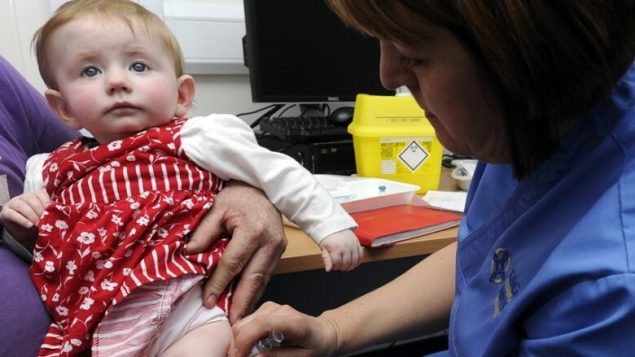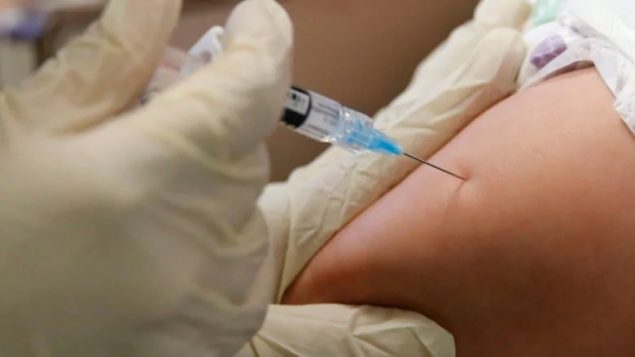Canadian researchers have published a new study suggesting that infants are more vulnerable to measles than had previously been thought.
The researchers from the Hospital for Sick Children in Toronto and Public Health Ontario say the majority of the nearly 200 infants they studied were susceptible to measles by three months of age.
The study found none of the infants was immune at six months.
The research was published online Thursday and appears in the December edition of the American Academy of Pediatrics journal, Pediatrics.

Lauren Durbin, 10 months, is given an MMR injection by Sister Sian Owen at Morriston Hospital in Swansea, South Wales in this 2013 file photo. The Canadian study appears to debunk long-standing notions that most babies are protected for much of their first year by antibodies passed on by their mothers while pregnant. (Rebecca Naden/Reuters)
The findings appear to debunk a long-standing belief that most babies are protected for much of their first year by antibodies passed on by their mothers while pregnant.
The study’s senior author, Shelly Bolotin, calls the findings “quite alarming” since most babies don’t receive the measles vaccine until they are 12 months old.
“This is really troubling because measles is a serious disease, and it can be quite serious in infants,” Bolotin, a scientist at Public Health Ontario and an assistant professor at the University of Toronto, told The Canadian Press.
“It can be absolutely devastating and we need to make sure that we are protecting our most vulnerable members of our population–infants.”
Bolotin says the findings make it imperative that immunizations be kept up to date.
With files from CP, BN, NBC News, Postmedia







For reasons beyond our control, and for an undetermined period of time, our comment section is now closed. However, our social networks remain open to your contributions.